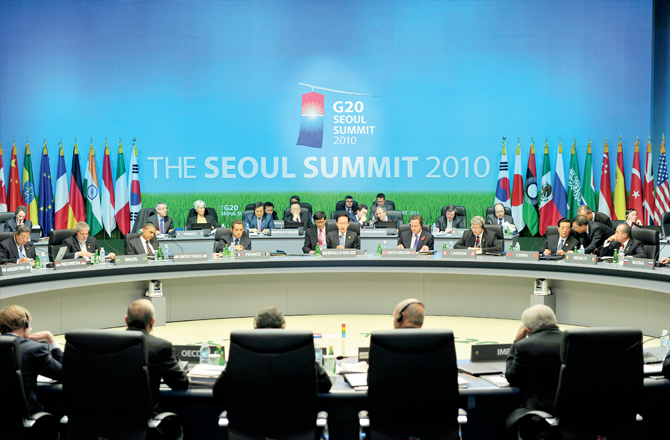In 2010, the Presidential Commission for Shared Growth for Large and Small Companies was launched with a view to settling conflicts between large-sized businesses and SMEs. The commission is assigned with the duties of fostering an atmosphere conducive to shared growth in industries, monitoring and announcing large businesses’ shared growth indices, designating sectors and items suitable for SMEs, and settling conflicts between large businesses and SMEs based on a social consensus.

The G20 Summit in Seoul in 2010
The G20 Summit in Seoul in 2010 was held under a similar theme. The G20 Summit came into being following the global economic crisis in 2008, based on the view that it was necessary to have major emerging countries take part in international economic discussions, as the G7 Summit inevitably had certain limitations in this respect. It was pointed out that the international financial system had failed to reflect the fact that the share and role of emerging countries had expanded to a considerable extent over the previous three decades.
At the G20 Summit held in Seoul in 2010, South Korea assumed the position of the Chair, indicating that the country had assumed a positive role in the international economic order.
The G20 Summit Seoul adopted the 20-item Seoul Summit Leaders’ Declaration and came up with an agreement containing 74 items. Other results of the summit included the announcement of the Seoul Development Consensus for Shared Growth, the Multiyear Action Plan, and the Anti-Corruption Action Plan.
The Seoul Summit Leaders’ Declaration stressed the role of developing and emerging countries in a move to put an end to the foreign exchange war between major countries and to reform the IMF, which used to be centered on industrialized countries. Its contents were focused on the pressing need to stabilize global financial markets and provide support for impoverished countries striving for economic development. The declaration went a long way towards enhancing the status of South Korea in global economic and financial markets.
